|
The Good Friday daily life of a Hospice Worker...
As I shared with our staff on Wednesday, we experience the presence of Good Friday each day as we care for our patients. So often we hear the echos of Christ's final words... "Father, forgive them, for they know not what they do." "They don't really know how to take care of me," she shared as one of my patients talked about what it was like to surrender and to ask for help. The woman who had lived independently for decades was suddenly faced with the reality that she was no longer going to be able to care for herself. "I have never asked for help," she continued. "I have had to tell myself, 'they don't know how to care for me, but I have no choice in this. They feel that what they are doing is right.'" While the words of Christ were meant to let God know that the actions of God's creation would result in the death of God's son, they were spoken as a declaration. Surrendering to circumstances such as the loss of personal control is something all of us must face at some point and time in our life. The process of aging and subsequently our own loss of our ability to care for ourselves, will at some point leave us with no other alternatives. "Today you will be with me in paradise." To tell someone that they are "good enough," even for the Kingdom of God, is something that many people struggle to understand. The words of Christ to one of the men hanging next to him on the day that he was crucified reminds us all that the citizenship of heaven is open to everyone. Scripture shares that the man was a "criminal," and that he admits that his punishment is "just." Years ago I met a man who had the word "Guilty" tattooed on his arm. He shared with me that he had murdered a man when he was "in his twenties." He talked about his life during the time of the murder, and that his life was surrounded by drugs, bad situations, and "dark times." As he continued, he asked me if I felt that God had forgiven him? The hardest thing for any of us is to understand how God's grace, mercy, and the act of forgiveness works. We all struggle to understand how God unconditionally loves, when we conditionally love ourselves. He shared that he had often thought of getting the tattoo, "Forgiven" on his other arm, but "couldn't." "What would people think who know me best. It would be laughed at," he continued. The promise of paradise is the reminder to any of us that God's grace in our lives is sufficient, and that as scripture reminds us, there is nothing that can ever separate us from the love of God. For those who care for God's children as they face life-limiting situations, the assurance of that forgiveness is something we are asked to convey. Providing the words are so important. Praying that they are received and believed are something else. "Behold your son: behold your mother." The need to know that those that we love will be cared for after we die is something that all of us understand. This last week I stood next to a bedside where I had just conducted a wedding. The couple had been together for over a decade and have two sons, but had never formerly been married. Following the ceremony, the father sat with his sons and shared his dreams for them. His hopes that in the future they would care for their mother, and that as they grew into men themselves, that they would remain faithful to God. We buy life insurance, and prepare wills, but ultimately after our death, we realize that we have surrendered everything. We have no control over what happens after we are gone. The hope that those that we love will still have support is something that we have no guarantee over. While Jesus died, he saw his mother, and before his last breath, he shared the need to ensure that his mother would be cared for. Each day we encounter people who are doing this. Their last wishes are often the hope that life will move on after their death, and those that they love, will be cared for. Recently I spent time with a man who had even gone so far as to replace every toilet in his house, as well as, a list of other home improvements. His wife and two children, "shouldn't have to worry about anything," he shared, "after I die. I've tried to think of everything." He had set and accomplished many goals as he died, written his obituary, and even decided what he wanted his last days to look like. What he didn't count on was that the cancer that he battled would cause him to become someone very different. It was very difficult for his family to watch his personality change, and for him to become very angry., often frightening his children. It was not what he had planned. About a month after his death, a package arrived at the home. In it was a video made by the man, sharing that he was sorry for leaving his family, and that he hoped that they were doing okay. It was his way of hoping that what he had hoped for had been realized. "My God, my God, why have you forsaken me?" Living with a terminal illness can also cause people to express feelings of being abandoned by God. The term, "Just a part of God's plan," can be painful, even when said with the best of intentions. We live in an imperfect world, and when faced with someone who sees their illness as a punishment by God, or seen as God's silence, can be disheartening. "I don't know why God is letting this happen to me." These are some of the hardest words that I encounter. It is not isolated. I think for any of us, we have experienced times when the presence of God seems to be non-existent. None of us know what "God's plan," is for anyone, including us. When we have only the human condition to use as an example of support for one another, the reality of God's presence can, and often leaves us asking, "Why?" Books have been written about why bad things happen to good people, and living through our own pain, but bringing ourselves to the belief that God is always present, even when we don't sense God's presence, can be difficult for any of us. Sometimes we must be intentional about reminding others that God is still there. "I thirst." The reality that our bodies will let us know when "we are done," is often the hardest on those who are providing care. "Mom hasn't eaten anything since Monday." "I tried to get her to drink a little water, but she can't swallow." Watching someone you love die is by far one of the hardest realities any of us might face. Hearing the words, "I'm thirsty," only to realize that the person can no longer swallow, can lead to despair and heartache for those who are near. Watching an ice cube melt on the lips of someone who can no longer swallow, as it circles, and drips away, leaves us knowing that at some point, we can no longer meet the needs of others. Moving from curing to caring for someone as they die is something that we face each day. "It is finished." I always try to ask, "What do you want your last day of life to look like?" While I know that each of us have in the back of our mind some idea of what we would hope our death looks like, experiencing that day is something we can't truly plan for. The reality that we will succumb to a last breath, or a last dose of medication, a final word, and the reality that we will never open our eyes again, can leave us with anxiety and fear. For me, watching someone surrender to death is filled with many feelings. Rarely do any of us get the opportunity to say the words, "It is finished." Our bodies are designed to provide a place for our spirits to dwell, and are the home to the breath of God. Years ago my grandmother wrote in her Bible, "The important thing in life is not to conquer, but to fight well." In hospice circles we talk about someone's death in the terms of "dying well." It is our hope that we all will be able to declare when our life is completed. "Father, into your hands I commend my spirit." The final moment that we let go is the greatest unknown that we will experience since the day that we were born. Trusting that the last breath we take will be met with our next in a new place is what our faith represents. It is the reality that the God of all creation waits on us. Even before our last day of life, we slowly learn that ultimately our life is not our own. Even for the most controlling of people, the willingness to relinquish our life can be a struggle. I have watched people live in silence for days before finally dying. Often when this happens, I have heard people say, "They had a lot to work through." Again, I have also heard the words, "It was just God's timing." Each day I try to even start my own day asking that God lead, not me. For any of us, today might be our last day of life. Time and time again I hear, "There is no guarantee of tomorrow." It's as if we are giving God permission to have a presence in our life. Jesus' final words are the declaration that his life is complete. They are a reminder that even at the moment of our death, God continues to care for us. The daily life of those who work with people who are dying never becomes "just another day." The experience of Good Friday should never become, "just another day in the church." As we consider the life of Christ, his death, and soon, the resurrection, our own life is moving closer to our own death, and the moments when we may find ourselves living out each of these words.
0 Comments
About three in the afternoon Jesus cried out in a loud voice, "Eli, Eli, lema sabachthani?" (which means "My God, my God, why have you forsaken me?") ~ Matthew 27:46 What happens when we are forsaken by the church? Yesterday I spent time with a family who found that their church had, "fallen away from us." Nearly two decades ago, the death of a husband limited the ability for the wife to attend. As the wife got older, one of the children began spending more time caring for her mother, until she became the full-time caregiver. During this time the church experienced several leadership changes, and the family was forgotten. Now, the wife is dying and when I inquired about her faith community, the daughter shared that they were members of a particular church, but they didn't want to reach out to the church because they felt that, "it was too late." It's really heartbreaking. It's hard to know who is at fault when this occurs. We have all seen people leave churches for various reasons, and the environment of some faith communitues has been, and continues to be about change. As I layed awake in bed last night, listening to a thunderstorm that rattled our home, I thought of everything this family was thinking and experiencing. I thought about my own experience as a new pastor in a congregation and learning of a member's death, and how I felt when I realized that I didn't know of her ever attending the church, and how the family reacted after the death. When I did reach out, I was told, "Oh, now you decide to call." Even as Jesus hangs on the cross, he cries out to God, "Why have you forsaken me?" Everyone seems to gasp at these words, but we all have experienced, or felt, that God is not present or listening to us. We are reminded that each of us belong in the church and that we have specific purposes in the body of Christ, but our ability to "show up" and perform that duty is overwhelmed by the human condition. I wish there was something I could do for this family, but their wound is real, and for the woman who is dying, will always remain. I'm grateful that God never forsakes us, even when we have failed. That wholeness prevails at the moment of our death, and that the resurrection exists so that we are able to rise from all of our life experiences, including the times when we have felt forsaken. Stay in God's grip! G. Todd Williams (c) 2018 God of the Forsaken
My God! My God, why have You forsaken us – Forsaken us in the painful groans of the crucified! In His miserable helplessness, We are even more helpless, suffering by the million and dying. My God! The nails that pierced my Lord, cruelly surely also pierced humanity; The stares from Calvary’s spectators are ours: The unspoken doubt that all ends in a silent cry, empty of light and love. My God! That my Lord’s life should end, watched by crowds filled with rejection. Loved only by a terrified few watching in fear, leaves us all in shock and despair. My God! Into that cold stone tomb fall our best desires; The visions of our youth succumb to dark shadows, and even in rebellious desperation in the darkness sobs. Dear God! On that darkest of Fridays You did not forsake us! Not Jesus, nor any other desolate child of humanity – That day You entered all of our forsakedness, testing for Yourself the flavor of death shaping the valley of the shadow to become a pathway of hope. We praise You, O God! We proclaim You to be Lord! Hated and rejected, One of sorrow and grief great and marvelous are Your works! Wounded for our transgressions, bruised for our iniquities, God is with us! Hallelujah! After saying this Jesus was troubled in spirit, and declared, "Very truly, I tell you, one of you will betray me." ~ John 13:21 It's the middle of the night, my sleep has betrayed me, and I am sitting here, wide awake, with my mind filled with so many thoughts.
While I have struggled with insomnia during various times of my life, I find that when I begin to overwhelm myself with "things," I seem to find my sleep gets pushed aside to provide for the time I need to process everything. It's in moments like these, especially during Holy Week when I'm trying to balance work, preparing for services, and a number of other commitments that I actually find the time as a gift. "A gift?" Perhaps the lack of sleep has made me a little crazy. But it's true. As I sit in the darkness I begin to meditate on Christ's journey the last week of his life. The triumphant arrival into Jerusalem, and then an afternoon, filled with anger, as he turns over tables in the temple. The disciples, remembering quiet nights laying next to wood embers glowing from a fire, against a sky filled with stars, thinking of the Kingdom of God, and the stories that Jesus had shared. About this time there must have been those wishing that they were simple fishermen again before they met Jesus, and dropped their nets to "follow him." There would not have been a place where they could truly escape what was happening at this point. The restlessness was real. The sleepless nights were filled with memories that now have given way to worries of "what might happen tomorrow." Jesus, the child of God, and being God, understood what it meant to be fully aware of the human condition at all hours of all eternity, was now aware that as part of this "plan" he was about to experience something new. Jesus' own life was now to be met with unknowns. The God of all creation was about to encounter death. Something that even God has never truly known, and it will come because of one of God's own children. One of God's own. The night has suddenly become not just a time of darkness but a place of darkness in the life of Jesus. "Tomorrow it will happen. He will betray me." Did Jesus lay awake? Did Judas, as he slept next to others who have been on this journey as well, toss and turn, struggling to sleep as well? Did he awaken, and look across the room, and think of what he would do? Would it be so strange at this point for Judas to awaken, only to find Jesus staring back at him? Was it in the middle of the night when he plans to identify Jesus with a kiss? Did he think of what the silver coins would be used for, and what his life would be like when their weight rested firmly in his hands? The night must have seemed to last for eternity. But then, alas, even the need for sleep creeps in, just like the one who slipped away into the darkness to plan the betrayal. Like the thief of the night, he dreams of what he will do, "if only." The darkness has become like day, attempting to surround a Light that has never been overcome. The plan is set. Are you awake? Stay in God's grip! G. Todd Williams (c) 2018 "By faith Moses' parents hid him for three months after he was born, because they saw he was no ordinary child, and they were not afraid of the king's edict."
~ Hebrews 11: 23 I live in a city filled with immigrants and dreamers that all have their own stories of what brought them to this country. In recent years we were witnesses to thousands of mothers and fathers packing up a few belongings and telling their children to head north. From Central and South America, children by the hundreds were being given instructions to head to America. The stories of what happened with many of these children are as many as the number that attempted to make it to a new land. A new place, where their lives might be much different. Throughout time there have been mothers and fathers who have trusted God with the lives of their children, and have placed them in baskets, on trains, and on pathways, in hope that God would protect and provide a better place. Our world is a place where ambiguity beckons wanderers to step out, and to seek a place where things and ways of life, are different. It is hard to remain faithful when we discover that our minds are unable to remain clear. Our hearts and minds desire clarity. We like to have a clear picture of a situation, a clear view of how things fit together, and a clear insight into our own and the world's problems. But like so many things in this world, our life doesn't always offer the clarity we are looking for. We find that there are boundaries that are created. Boundaries that serve as borders between hate and love, good and evil, neglect and care, old and young, and those that are guilty and those who are blameless. There are heroes and people who are cowards. There are rich and poor. All of this combined makes for a world that is filled with ambiguity, and makes decisions, and for that matter, our ability to discern what decisions even need to be made a difficult undertaking. Each of us are children of God, created in a way, that God, like many mothers and fathers, God prepares us for our journey, and points the way. The story is the same for each of us, we have to learn to make the right choices, while not being entirely sure, will lead us faithfully to where we need to be. Stay in God's grip! G. Todd Williams (c) 2018 I spent the morning with a patient and her sister. They shared that they were both respectfully born in the year of the Dragon and the other, the year of the Tiger. It wasn't too long before they asked about my birth year, only for me to disclose that I was born in the year of the Rabbit.
The two laughed as they shared stories of how they fought with one another growing up. "Even if we were sitting across from one another at a table, our feet were often kicking one another." Over the years, the two along with all their siblings, would make their way to the United States, learning that it was important to be strong women in a new place. The Tiger and the Dragon would each raise a family in this new place, surrounded by new customs and traditions, while holding strong to who they were as immigrants and children of people who dared to dream of a new life for them. As I sat and listened to the Tiger share of her illness, I could see the power that she possessed, even wounded by illness, she was strong. She said, "I know that I am dying, but they have learned so much from my illness. You know there is a doctor that has written an entire paper on my illness." The Dragon, listened to the Tiger, as tears rolled down her face. The Dragon admitted that the Tiger was by far the strongest and most faithful of the two, and questioned how life would be without the Tiger present in her life. Being the Rabbit, I wasn't sure if I had ever found myself in a place, where I was surrounded by such powerful images. When I made a comment about this, the Dragon immediately reminded me, "Of course you are here. The Rabbit represents hope. It's exactly what all of us need. Even the Dragon and the Tiger." As we joined our hands and prayed, giving thanks for the opportunity to share in this journey, the Dragon, Tiger and the Rabbit, all discovered the overwhelming presence of God, that brought us all together. I love it when culture and traditions that have prevailed through the millenniums can provide room for the presence of God. Stay in God's grip! G. Todd Williams (c) 2018 "Now that same day two of them were going to a village called Emmaus, about seven miles from Jerusalem. They were talking with each other about everything that had happened. As they talked and discussed these things with each other, Jesus himself came up and walked along with them; but they were kept from recognizing him."
~ Luke 24: 13-16 Years ago my grandmother painted "The Road to Emmaus." The painting, for her, was based on one of her favorite pieces of scripture. She and my grandfather traveled and visited many places around the world. While they visited new places, she was always aware that God was present, and that the stranger she met walking along the road may very well be God, or at least, part of the Divine. Our Lenten Journey begins with one step. Like the two that traveled along the road to Emmaus, they had encountered some traumatic life changes, and with each step, they talked of the events they had experienced. Things were not necessarily looking good, and the news was not good. Jesus had been put to death, and the disciples were becoming scattered, and were trying to process what had just happened. Their experience had literally left them fragmented and wounded, and their shock, caused them to become blind to what was before them. We ask ourselves, "How did they not recognize Jesus walking along the road with them?" We should be asking ourselves the very same question. "How do we not recognize that God has been walking with us each moment of every day of our lives?" It happens. While our eyes may seem to be open, and we may be talking about what we have seen, and experienced, the fact remains, "Where is God in all of this?" As we search ourselves in this season of self-reflection, there will always be parts of ourselves that we don't know. There will always be some sense of darkness, where only the light of Christ can reside. Let's face it, there will always be something about us that only God has seen. Even when we know quite a lot about ourselves - our gifts and weaknesses, our ambitions and aspirations, our motives and drives - large parts of ourselves remain in the shadow of consciousness. As much as I think I know myself, there will always be hidden things about myself. Other people, especially those who love us, can often see us better than we can. "How did they not recognize Jesus before them?" The way we are seen and understood by others is different from the way we see and understand ourselves. We will never fully know the significance of our presence in the lives of our friends. While we also know how involved Jesus was in the lives of the disciples, I have to think of the times in my life when a situation has kept me from seeing what was right before me. Often, our eyes can be kept from seeing what is before us when our heart is involved. In these times, that is when grace comes into view. Grace not only calls us to humility but also to a deep trust in those who love us. Don't dwell on the times when you find that emotions or situations have made you blind to what was actually before you. Instead, ask God to reveal these things to you, and pray for God's guidance through them. Stay in God's grip! G. Todd Williams (c) 2018 For we are what God has made us, created in Christ Jesus for good works, which God prepared beforehand to be our way of life. ~ Ephesians 2:10 I recently met a person whose entire life seemed to have been filled with regrets. Life events just always seemed to end with tragedy and chaos.
Multiple relationships, never ending job searches, and disappointments just filled every decade of his life, "and now this," as he shared about his terminal diagnosis. "When I get the chance to talk to God in heaven, I have a long list of questions to ask." It's hard to talk about how good God is when all a person can focus on is the bad. We all know people who just seem to have these experiences. Their lives just seem to encounter sadness. The writer of Ephesians reminds us that we all have been created by God for specific purposes. Sometimes I have to wonder what happened when I meet people like the man I had been talking to. I learned a long time ago that in situations like these, and with people who seem to have encountered so much loss, that defending God is the last thing they want to hear. And trying to rationalize why God would allow some things to happen can quickly lead to a dead end in the conversation. Although God created all things and pronounced them as, "good," including humanity, we seem to have lost that goodness to generations of poor decisions that today we are left to deal with. Pollution, wars, and the problems of the world are as close as the television, or walking to the bus stop. It's easy to allow these images to become part of our own life, never the less, the ones who are part of those images. It can be heartbreaking for any of us. Our need to be reminded that we are all created in an image of a God that loves each of us, must somehow find its way into a world that looks very different than the original creation. While we struggle to make sense of things when we encounter pain, there is still a God who wants us to know, "I am with you always." The pain we encounter cannot always be explained away by saying, "It's just lart of God's plan." We all have been created by God to serve as an instrument of that presence, and to have purpose. Our encounters of this world cannot change that. Being able to live into that purpose, even when we encounter disappointments, is what makes that purpose life-changing for us as well as others. Stay in God's grip! G. Todd Williams (c) 2018 "May the words of my mouth and the meditation of my heart be pleasing in your sight, O Lord, my Rock and my Redeemer."
~ Psalm 19: 14 I wish that I could say that I have always been a fan of silence, but that would be far from the truth. Even as far back as a young child, my first transistor radio would play at all hours of the day, and night. I can remember AM farm reports for the weather so that I would know how to dress to feed our cows in the morning, and what to wear to school when the school bus arrived by 6:45 am. I would listen to the top 40 countdown, and because the radio was powered by batteries that I would get from the hardware store in town with money I had earned for doing my chores at home, I carried the radio with me when I checked the fence line after a storm, or was sitting next to the creek that ran next to our home. I guess I was about twelve when I lost the "privilege" of having that radio when I failed to listen to what my stepfather was saying to me. The radio was taken away from me, and I never saw it again. It was as if I had lost a friend, but more than that, I was left in silence. I just remember not knowing what to do. I would sing familiar songs, and sometimes when really silent, I would pick up my guitar and strum out a tune. I didn't know how to react to the silence. I guess in some ways I should thank him. In those quiet hours I would write, draw, and begin to talk to God in a new way. I began to have conversations with God, often telling God what I was thinking, and hoping for. All of a sudden, the life that had been filled with constant sound, was being changed into something different. I was learning to have a relationship with God, and I was learning to be comfortable with "me." I have often thought about what the world would be like without the constant noise that surrounds us. Automobiles zooming. Announcers breaking news, and selling products we must have. Politicians making promises, and planes soaring above among silent drifting clouds. I think it's interesting in scripture that it is not until the storm is crashing that the Disciples call out to God to bring peace and silence. It is up to us to seek the silence and the calm in order to hear God's voice. We start with us. Scripture reminds us that we are the beginning. Our words, our thoughts and our actions are the beginning of God's presence in our life, and demonstrates that presence to others. While the world seeks to gain our attention each day, the need for silence beckons to bring us closer to God. May the words of our mouths and the meditations of our hearts be the beginning of peace and God's presence to and for one another. Stay in God's grip! G. Todd Williams (c) 2018 "And they were bringing children to him that he might touch them, and the disciples rebuked them. But when Jesus saw it, he was indignant and said to them, “Let the children come to me; do not hinder them, for to such belongs the kingdom of God. Truly, I say to you, whoever does not receive the kingdom of God like a child shall not enter it.” And he took them in his arms and blessed them, laying his hands on them." ~ Matthew 10:13-16 Our answer to, "What happens when I die," has many responses, depending upon the person and their personal faith experience.
Yesterday I spent the morning with a sweet friend who is developmentally disabled. She has spent most of her life living in a group home. As I entered the building where she lives, she saw me and immediately asked me if I had brought her chewing gum. I reached into my pocket and pulled out two packages of her favorite brand. I opened one package, and took a stick out for her to enjoy. Her smile was quick, and she immediately took the piece, holding it in her hands and placed it in her mouth. Her fingers, adorned by multi-colored nails, then clasped my hands and she said, "What song today?" I asked her what she felt like singing. She began to sing in her low, gruffy voice, "This is the day. This is the day." As I joined her in song her voice faded as she chewed her gum, looking out the window at trees with long strands of Spanish moss seemed to dance in the wind with our song. Then as I sang the end, she joined in louder than ever, "that the Lord has made!" "Take me outside." I pushed her in her wheelchair out under the trees we had just been watching. The sun was bright as we strolled under their canopy. I asked, "So do you ever think about what will happen when you die?" Without hesitation, "I get to see Jesus!" She looked at me, still chewing her gum, and staring up at the trees, "I get to see Jesus, and I get to go to heaven." She began to sing, "He's got the whole world in His hands..." I joined her as we sang how we all are in God's hands. I asked her if she was in God's hands, "Always," as she asked for another piece of gum. "This one is stale." I smiled. This is how she usually let's me know it's time to either move a little further on our walk, or time to return inside. I took her inside and gave her another piece. She gave me the piece she had just chewed to throw away and smiled quickly again as she took the fresh piece into her mouth. There was a sense of joy as she began to sing, "I've got the joy, joy, joy, down in my heart." Before I left we prayed together where she thanked Jesus for loving, "even me." I am reminded that we are to come to God with a "faith like a child." I always seem to leave our visits being reminded of that simple truth. That while we sing about joy, and the day that has been made, while God holds us all in "His hands," we will get to see Jesus! The simple faith of this sweet soul is the gospel message we all seek to know and understand. Stay in God's grip! G. Todd Williams (c) 2018 Love your enemies and pray for those who persecute you.
~ Matthew 5:44 According to UNICEF, there are approximately 4 human beings born every second. What a staggering number of births! Around the world that is about 353,000 babies born each day! While it is also estimated that there are approximately 151,000 people dying each day. With all these births and deaths, it really makes one wonder how God does it! It also makes me realize that I have been one statistic on one day, and I will be another at some point. We ALL have been and will be. As the world continues to increase in population, and we all struggle for space, identity, and community, it seems that that instead of coming closer together and working to find ways for harmony, we tend to find things to separate us even more. It's not just about lines drawn on a map that signify geographic areas. It goes beyond that. Their are other ways. We can all name at least one, two, or three. The Kingdom of God will usher in a "new" way of looking at one another, understanding of community and wholeness. While we deal with our own needs, which often include our own fears and anxieties about others, we tend to divide people into "us" and "them." Even among families. You have inlaws, outlaws, and those that are somewhere in between! One thing is for certain, God doesn't divide the world. The same heavens that bring rain to our dry land, also provide moisture from heaven to our neighbors. It is the same sun that we bask in on beautiful spring days, that those half way around the world also embrace. God loves everyone uniquely and unconditionally. Our God wants us to do the same, but we can only do that if we believe in God's unconditional love for us. Loving our enemies, or simply those different than us, means we will need to learn to no longer divide the world. Unconditional love means that we look beyond our obvious differences while bringing hope and encouragement to a world that we know continues to change each day. While we consider the close to 353,000 new lives that enter the world each day, that is reflective of how many new ways we must learn to love one another. While 151,000 leave us wondering if we loved them enough? Loving one another is the best reflection of how God loves, and loves each of us, collectively Stay in God's grip! G. Todd Williams (c) 2018 When they reached the place God had told him about, Abraham built an altar there and arranged the wood on it. He bound his son Isaac and laid him on the altar, on top of the wood.
~ Genesis 22:9 I have often wondered what Isaac thought the next time his father invited him to go for a walk. God had required a sacrifice from Abraham to demonstrate his faith. Many people would argue that Isaac was not sacrificed, instead a poor ram had become entangled in some shrubs and that was instead the sacrifice. The truth of the matter is, Abraham built an altar, he took his son, whom he loved, and he bound him and laid him on the altar. To me, anything that is laid upon an altar is something that we are willing to give to God. My dad always seemed to like a good fight, but when I became ill, the real fight was on. My dad went to amazing lengths to find a way that his son would not only live, but would flourish. I remember my dad telling me to "pull myself up by my bootstraps." I would tell him, "My straps are broken. There is nothing left." He struggled to understand just how broken I felt, while in the meantime he prayed for me, took me to churches that would pray for me. I was brought to many altars, and time and time again, there just didn't seem to be any change. I realize that it's important to participate in your own healing, and I was done. I was exhausted, and the thought of heaven looked better all the time. It wasn't until my dad uttered one day after I told him I was dying that he said, "I know son, and I'm sorry I can't do anything about it." I remember looking almost in shock. I then realized, my father just surrendered his son to God. I won't ever forget the feeling, but as I look back, I realize my illness was as much a learning experience for me, but for my dad, it was a life-changing experience he had with God. What is it that is keeping us from having that relationship with God? Abraham built an altar and laid his son on it. Stay in God's grip! G. Todd Williams (c) 2018 "When you pass through the waters, I will be with you, and when you pass through the rivers, they will not sweep over you. When you walk through the fire, you will not be burned; the flames will not set you ablaze."
~ Isaiah 43:2 "You're fired!" "You are the weakest link. Good bye." Reality television has gained a lot of notoriety since the early days of American Idol, The Apprentice, and who could forget, Survivor. So many phrases that are now part of our daily vocabulary have come from such shows. "You have been voted off the island," and "Will you accept this rose," immediately conjure up played out scenarios that are now office water fountain fodder. We watch the person tear up as people share how the person does not "fit in" or how in their actions, they have harmed others. We all have seen this, and some of us have even applauded or agreed in what has been shared. Then we watch as the person is dismissed. It's reality television. I've often wondered if television had been around when Jesus, John the Baptist, or someone like Moses was around (Charlton Heston was a great actor, but really, how would he have stacked up against the real Moses in a late breaking summer hit?), of reality television producers might have focused in on these folks of the Bible. Just imagine. We would have seen their successes and failures, and just imagine what those crowds were really like as they screamed out, "Crucify him!" It is said that we kick people when they are down. In reality, we dismiss people because of their apparent woundedness, we stunt their lives by ignoring their gifts, which are often buried in their wounds. The new environment has made it okay to dismiss, rather than invest, in helping those that seem to be different. During this season of Lent, we look to Christ and in our own woundedness, we realize that we are all bruised reeds, whether our bruises are visible or not. The compassionate life is the life in which we believe that strength is hidden in weakness and that true community is a fellowship of the weak. It is no longer dismissing those that are about to be cast off, instead it is reaching out, taking hold, and reminding one another the God walks with each of us always. Stay in God's grip! G. Todd Williams (c) 2018 "Cast all your anxieties on God because God cares for you."
~ 1 Peter 5:7 Water has always been a source of life to me, as well as, a mystery. I will often go to the beach when I have a problem to reflect upon, or needing serious prayer time. There is something about the eternal movement of the water. As the waves come onto the shoreline, and then retreating, as if to draw more from the depths to bring to the surface, it is the reality that even before, and consequently after our life or this problem entered our life, there was the movement of the sea. Spending time watching the water, I'm reminded that God, like the current of the deep, moves in our lives and brings forth resolve when problems seem to be overwhelming. Casting our anxiety elsewhere invites the Creator of all to welcome our concerns, or those things that bring unrest to our souls. It is okay to share our entire being with God, even those things that lie deep within. When we cast our anxiety up the waves, remember, like the fisherman that casts his nets upon the water, we expect to receive something in return. For those concerns we give a voice to, the words, "Be still and know I am God," seem to be drawn in with each cast upon the water. May each of us receive the calming presence of God as we go to the water's edge, and in receiving the blessing, know that God always cares for each of us. Stay in God's grip! G. Todd Williams (c) 2018 He went on a little farther and bowed with his face to the ground, praying, "My Father! If it is possible, let this cup of suffering be taken away from me. Yet I want your will to be done, not mine."
~ Matthew 26:30 The most difficult part of Jesus' journey to the cross is seeing him be human. I mean this in the most loving way. I think we all encounter this at some point in our life. Knowing what lies ahead, and praying to God, "Please, let this pass from me." I sometimes find that my mind has difficulty "shutting down." Sometimes, there is simply uneasiness that happens in our lives. It's not that I am worried about anything in particular, and I am certainly not walking the path that Christ was that night, knowing that he was about to be arrested and condemned to die, but sometimes there is uneasiness. We cannot even begin to imagine what that must have been like, however, we do know what it's like to be given bad news. We have all experienced tests and trials in our life that we simply must "work through" or "experience." For me, as difficult as it is to see Christ so human, it also is a reminder to me that God has "been there, done that." I think about the fact that God dwelt among us. Through Christ, God has felt the sun bake upon his face, the smell of the dust as it encircles the sky, catching the scent of flowers blooming nearby, while also knowing the salty taste of his own tears, as he cried at the tomb of a friend. God truly knows us. Our ability to arrive at the other side of an illness, job loss, or any kind of a personal struggle, serves to remind us that while not all cups are like that which Jesus prayed would pass, we are offered vessels to take up and drink. Today I pray that we become one with God through Christ, who will provide the strength to make it through whatever cup passes before us. Stay in God's grip! G. Todd Williams (c) 2018 "Even though my illness was a trial to you, you did not treat me with contempt or scorn. Instead you welcomed me as if I were an angel of God, as if I were Christ Jesus himself."
~ Galatians 4: 14 Have you ever reached a time in your life that you are simply too busy to give any type of support to others? There was a time that I literally scheduled myself to the point that I had to look at the calendar to decide when I would eat and sleep. Being available to and for others is important, but remembering to schedule time for self must always be a priority. Even Christ provides the example by "going off to pray." If you don't take time for yourself, then the presence you provide to those things scheduled will not totally be beneficial because you are not able to be completely present because you become too concerned with what's next, and how much time you have to give. When we are completely present, we are then able to fully give of ourselves. Spending even a small amount of time with someone when we are totally present is greater than spending a great deal of time if we are consumed by the world. Just a reminder of how important our presence, not time, is to others when we are fully engaged and present. Stay in God's grip! G. Todd Williams (c) 2018 |
AuthorRev. G. Todd Williams is the author of the book, "Remember Me When..." and is a former hospice chaplain and pastor. Archives
February 2024
|
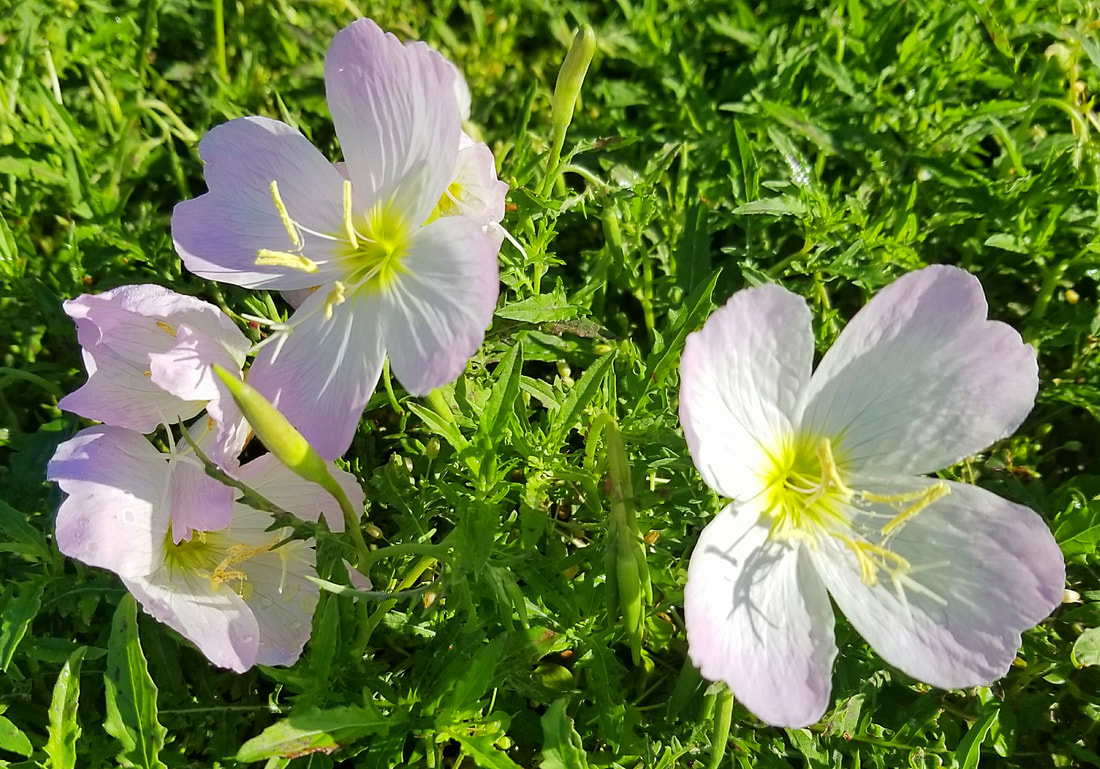
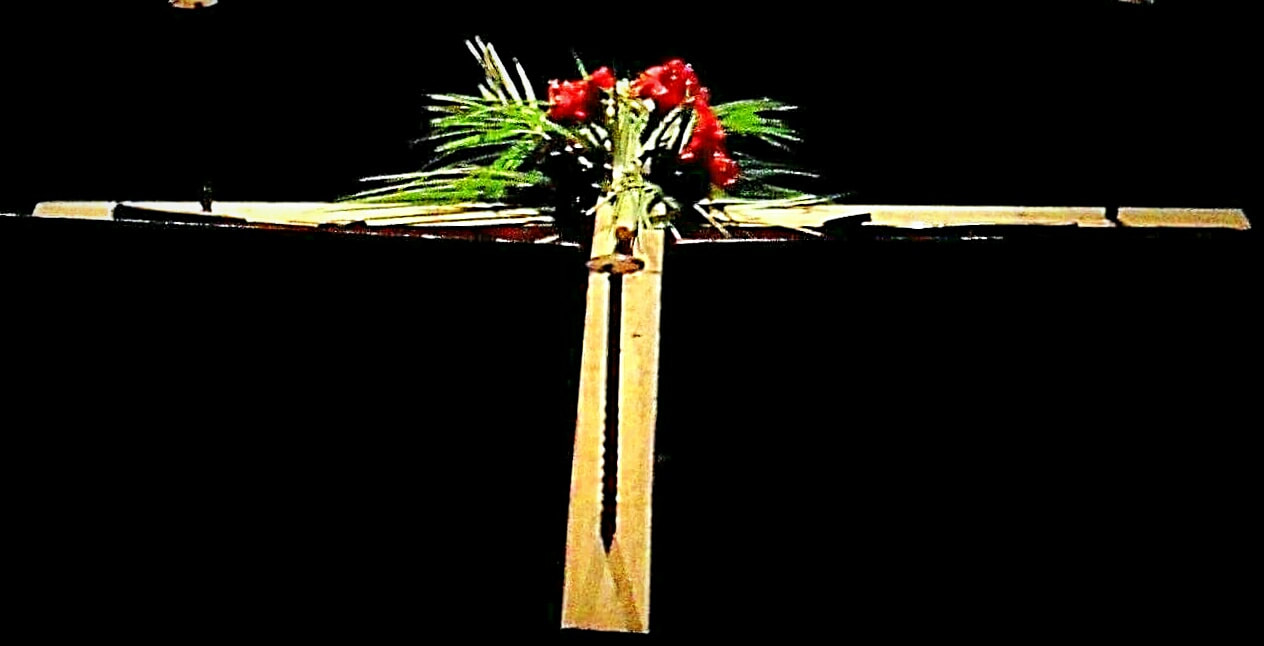
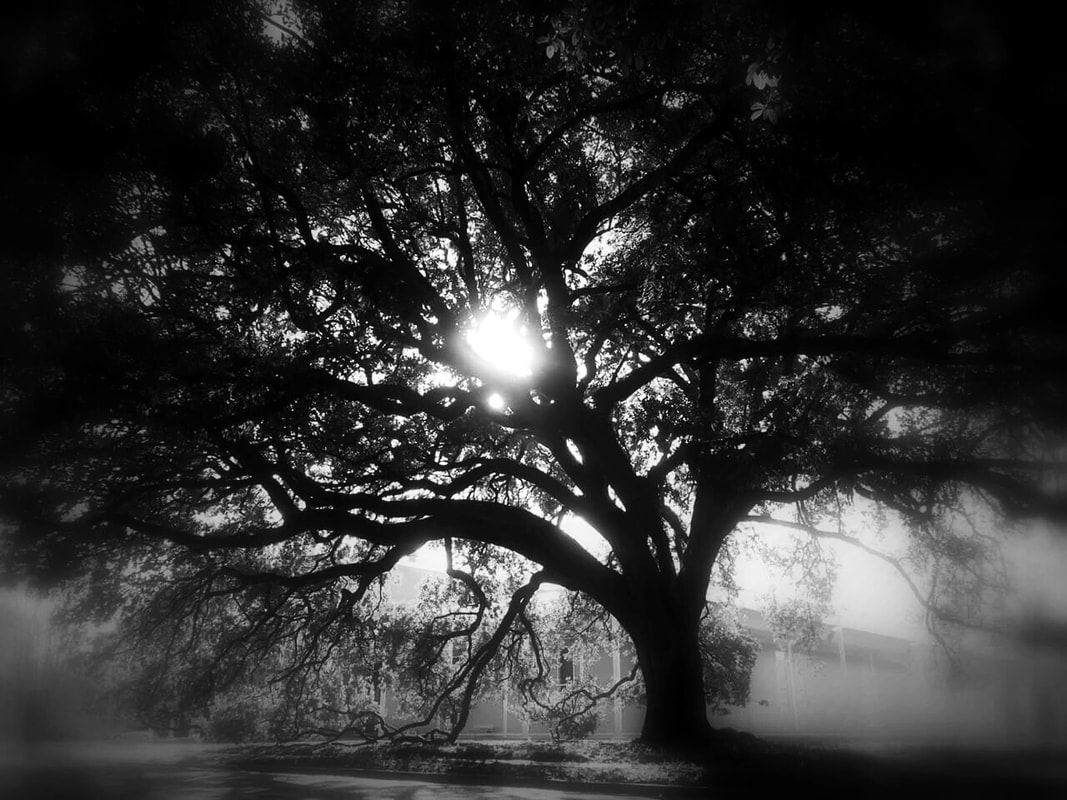
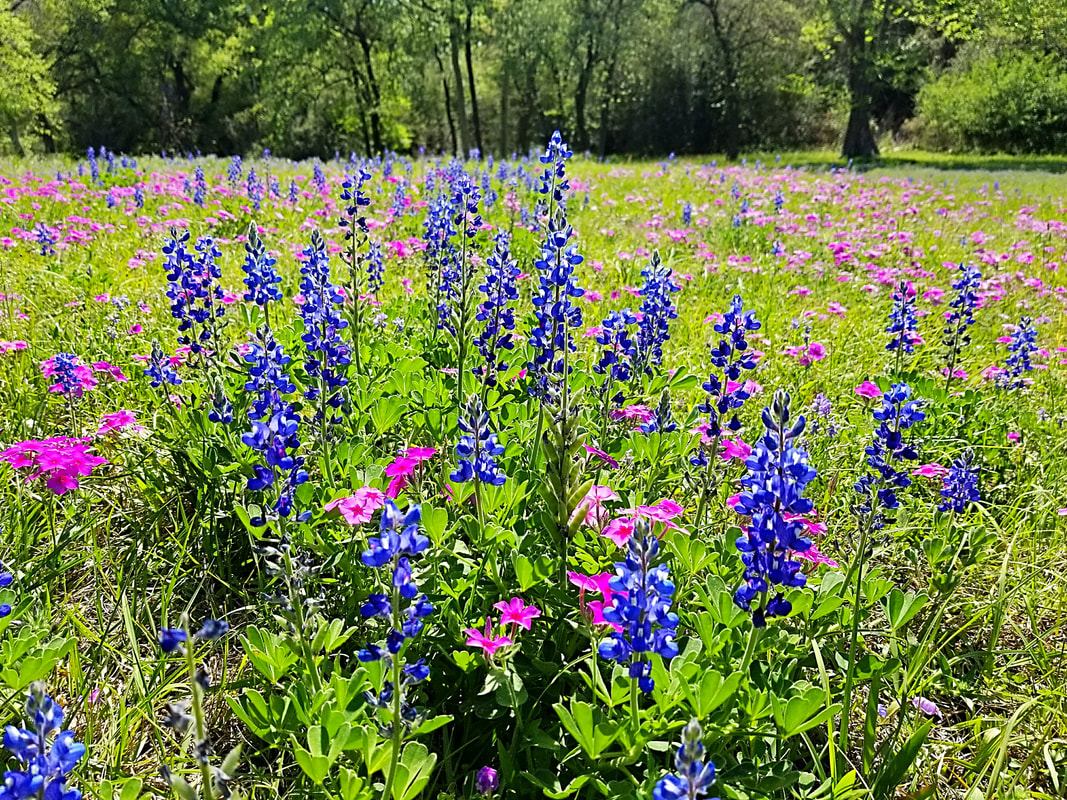

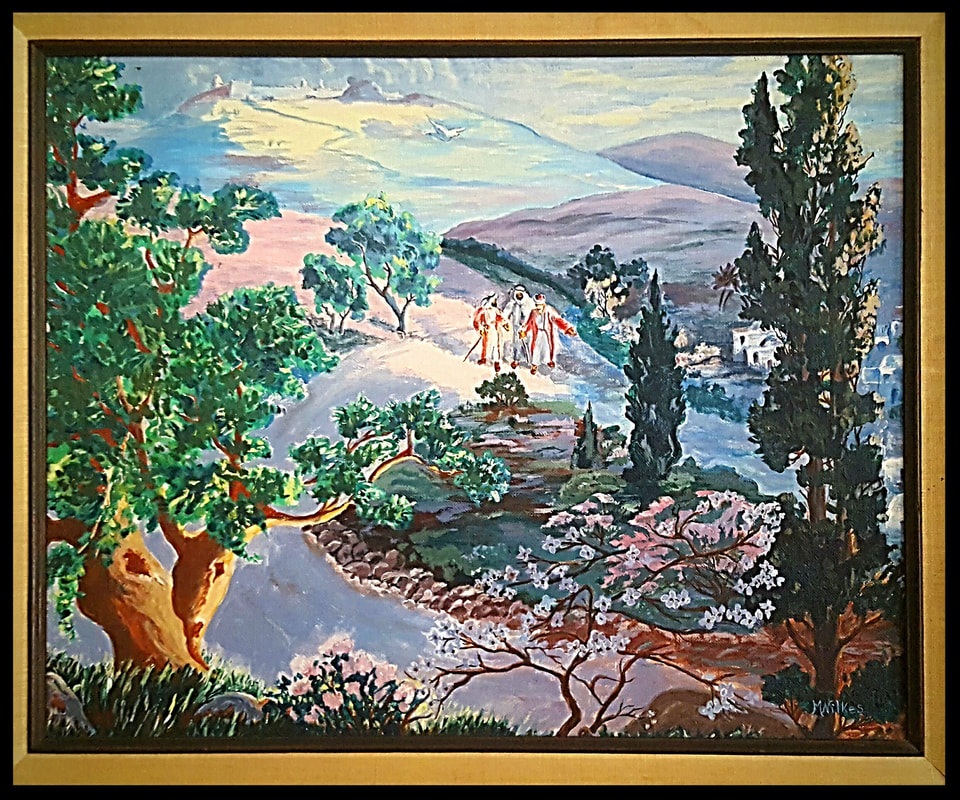

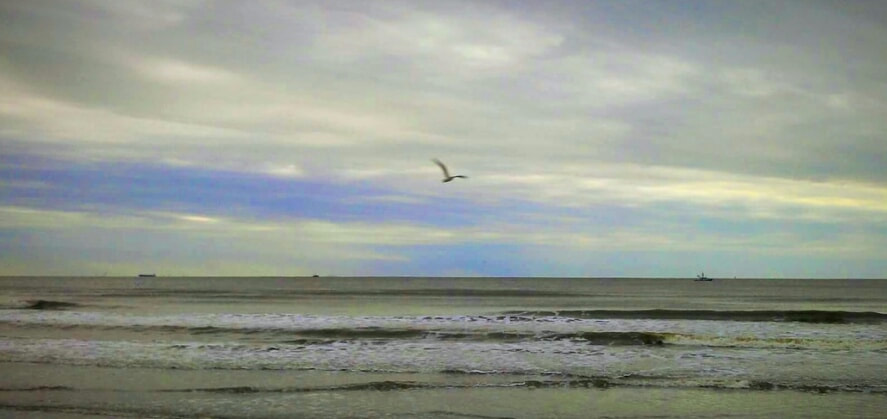
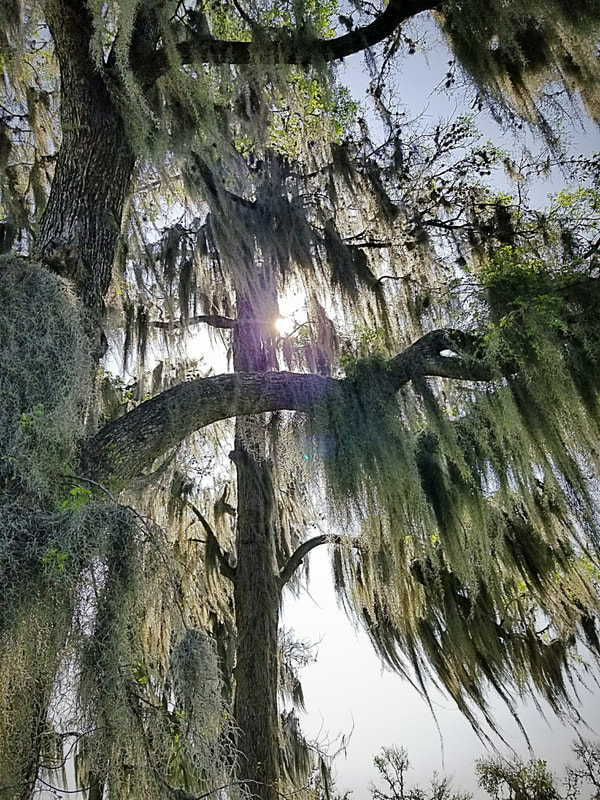

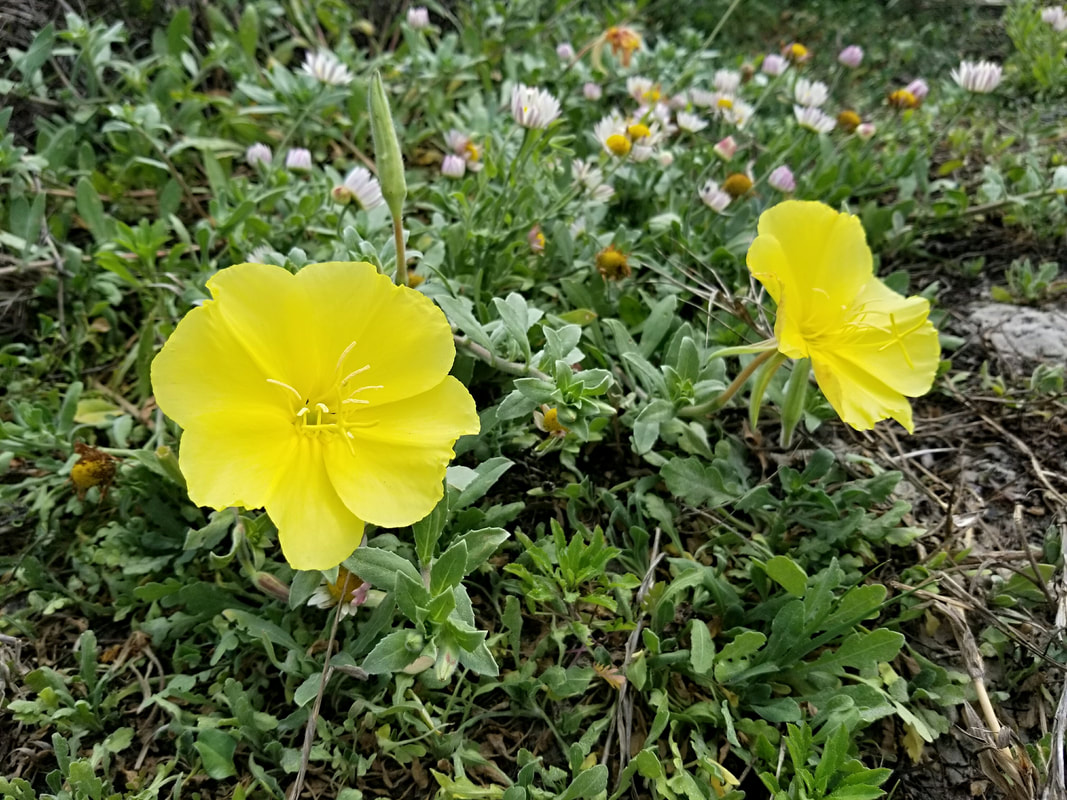

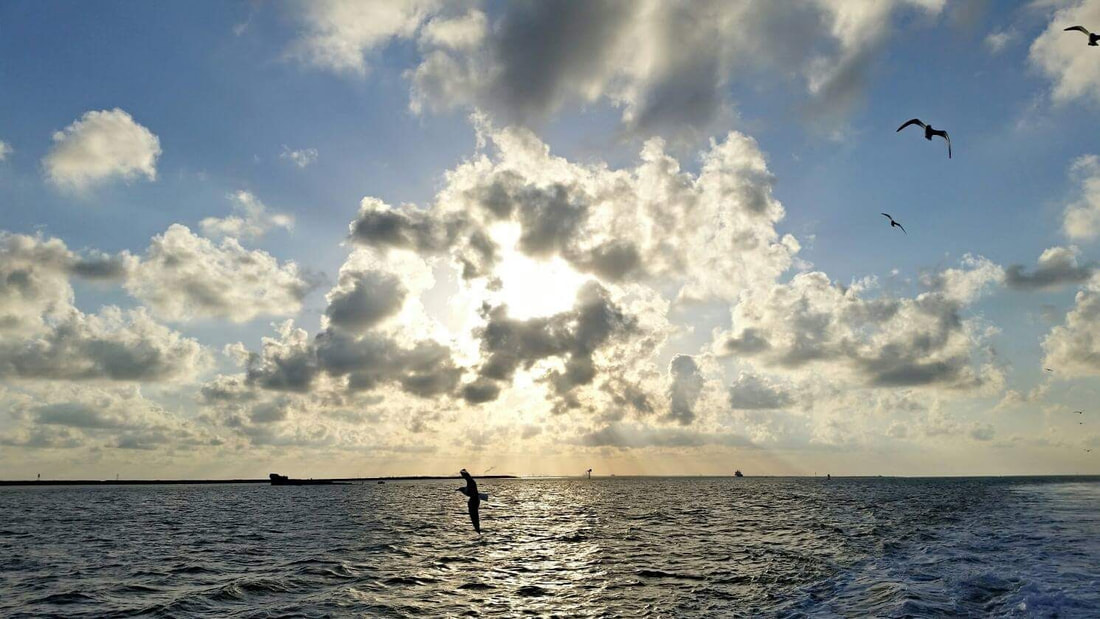
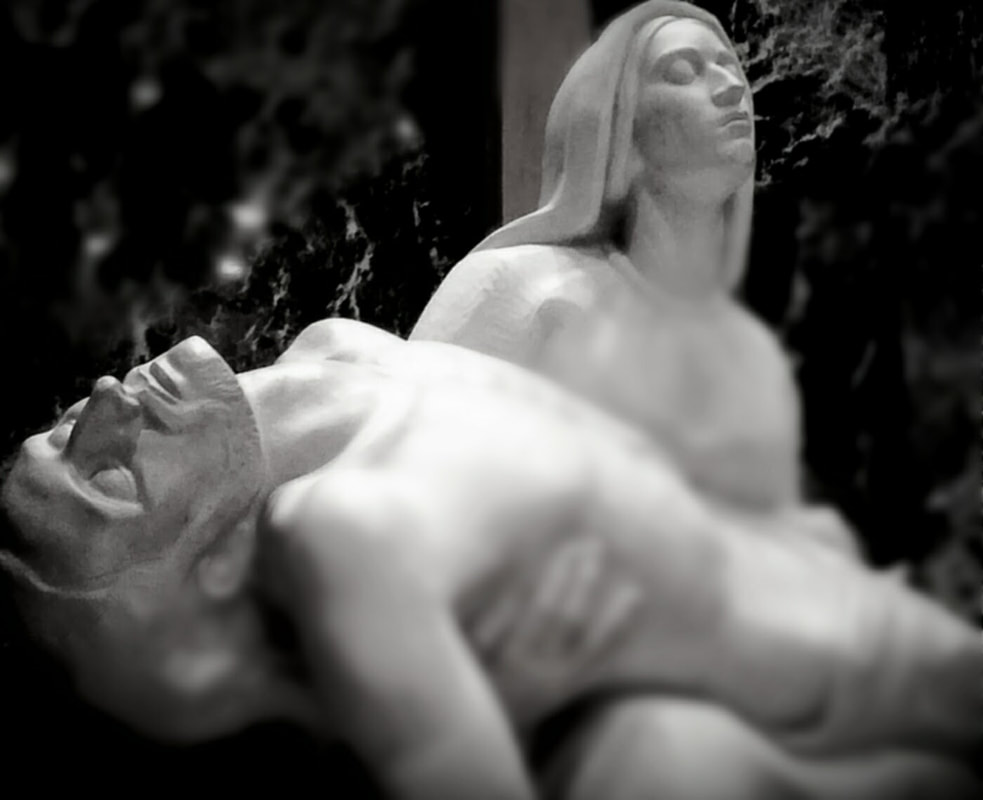

 RSS Feed
RSS Feed